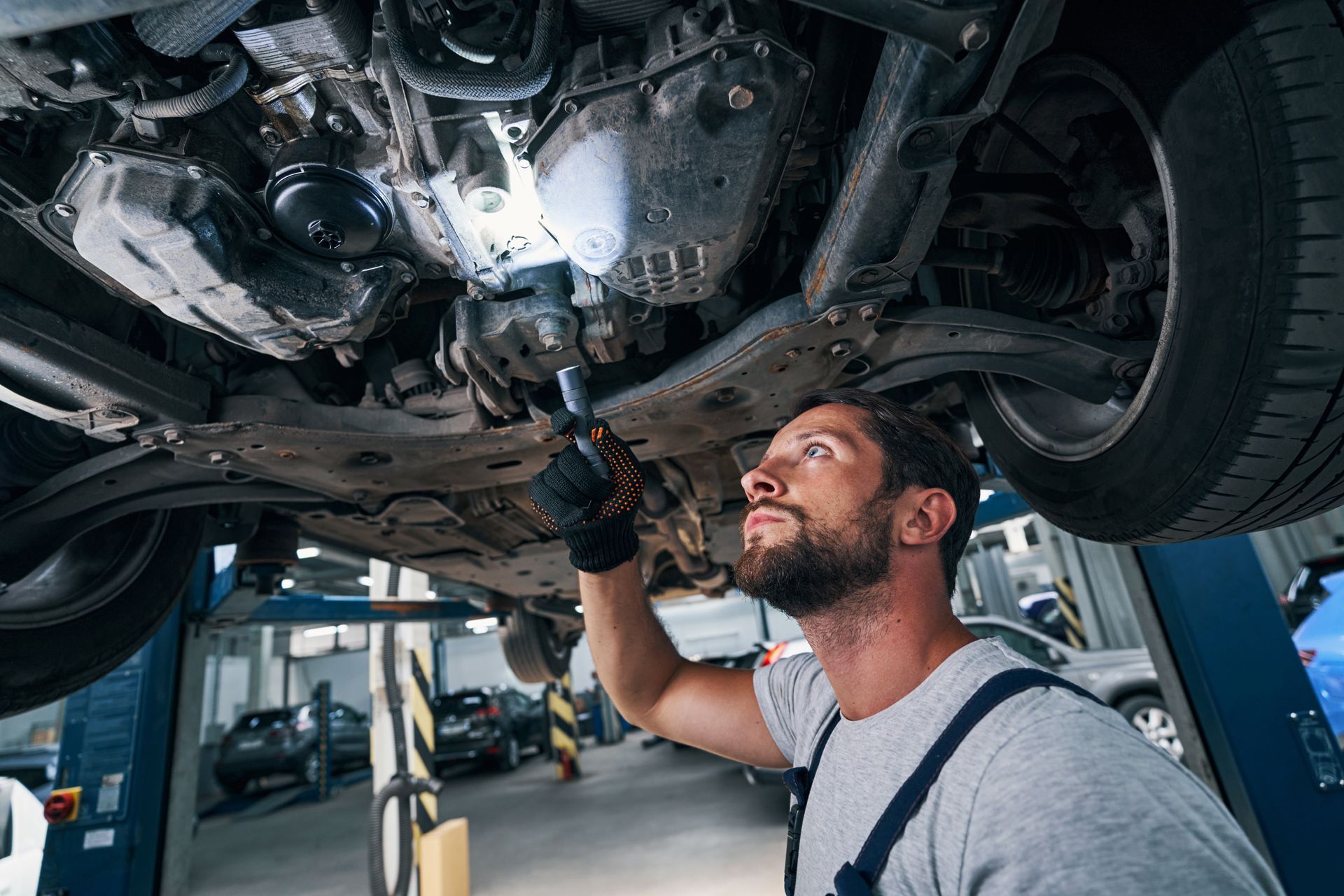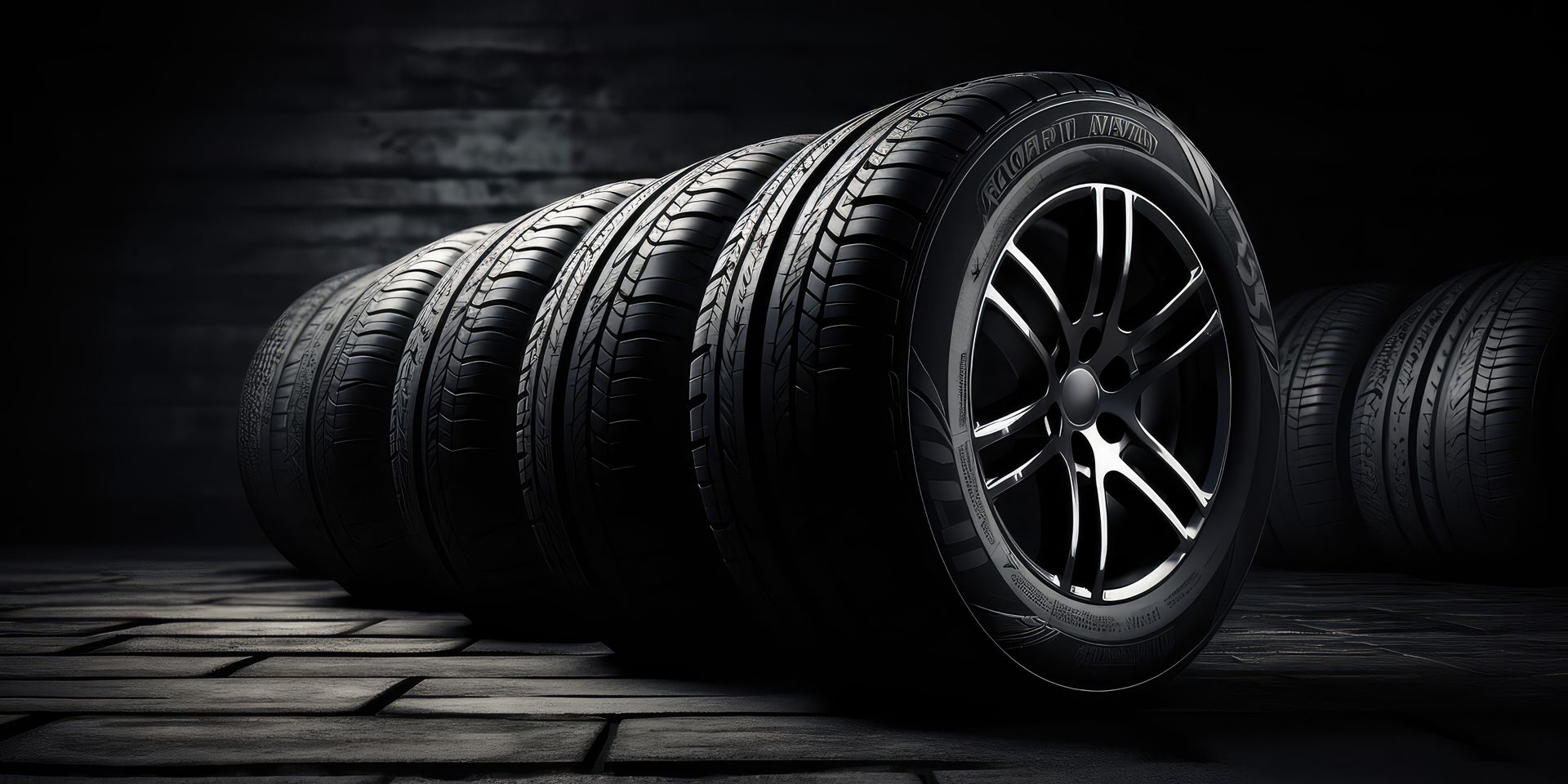The Most Overlooked Issues That Could Cause Your Car to Fail an Inspection
When it comes to vehicle inspections, most drivers in Pensacola, FL, focus on the obvious—working headlights, properly inflated tires, and functioning brakes. But at Garage 850, we’ve seen plenty of vehicles fail inspections due to seemingly minor or often-overlooked issues. If you want to avoid costly repairs and the hassle of a failed inspection, pay close attention to these commonly neglected areas.
1. Windshield Wipers and Washer Fluid
A streaky, cracked, or torn wiper blade might not seem like a big deal, but it can cause you to fail an inspection. Florida weather can be unpredictable, and visibility is crucial to safe driving. Additionally, if your washer fluid reservoir is empty or the sprayers aren’t working, this could be another easy-to-fix reason for failure.
How to Avoid This Issue:
- Check your wipers for wear every few months and replace them at least once a year.
- Refill washer fluid regularly and test the system to ensure the sprayers function properly.
2. Check Engine Light
A persistent check engine light is one of the most common reasons for failing an inspection. Many drivers assume that if their car is running fine, it’s okay to ignore the warning. However, the light could indicate an underlying issue, such as a failing oxygen sensor or emissions problem, which could cause your vehicle to exceed allowable emissions levels.
How to Avoid This Issue:
- If your check engine light is on, bring your vehicle to Garage 850 for a diagnostic check.
- Address any necessary repairs immediately, as some issues can worsen over time.
3. Emission System Problems
Florida does not require annual emissions testing, but if your vehicle emits excessive smoke or fails a visual inspection due to obvious exhaust issues, it may not pass. Problems like a faulty catalytic converter, damaged exhaust pipes, or an inefficient fuel system can contribute to failure.
How to Avoid This Issue:
- Pay attention to any changes in fuel efficiency or odd smells from your exhaust.
- Have your exhaust system inspected regularly to catch issues before they become major problems.
4. Faulty or Dim Lights
Your headlights, brake lights, and turn signals must all be in proper working order to pass an inspection. Even a dim or flickering bulb could result in a failure.
How to Avoid This Issue:
- Walk around your vehicle once a month to check that all lights function correctly.
- Replace any burned-out bulbs immediately and clean foggy or yellowed headlights to ensure brightness.
5. Worn-Out Tires and Improper Tire Pressure
Bald or excessively worn tires can compromise your vehicle’s safety and result in a failed inspection. Many drivers only check their tires when they notice handling issues, but routine maintenance can prevent surprises.
How to Avoid This Issue:
- Check your tire tread depth using the penny test—if Lincoln’s head is fully visible, it’s time for new tires.
- Keep tires properly inflated to manufacturer specifications, which improves safety and fuel efficiency.
6. Leaking Fluids
A vehicle that leaks oil, coolant, transmission fluid, or brake fluid may not pass an inspection due to environmental concerns and potential safety hazards. Even minor leaks can indicate a developing problem that requires attention.
How to Avoid This Issue:
- Check under your car regularly for puddles or stains.
- Have Garage 850 inspect your vehicle for leaks and address them before they worsen.
7. Loose or Missing Gas Cap
Believe it or not, a missing or loose gas cap can cause your car to fail an inspection. A faulty gas cap affects fuel efficiency and emissions, triggering the check engine light in some cases.
How to Avoid This Issue:
- Make sure your gas cap is properly tightened after every fill-up.
- If your gas cap is cracked or missing, replace it as soon as possible.
8. Suspension and Steering Issues
Many drivers overlook their suspension system until they experience rough handling or unusual noises. Worn-out shocks, loose ball joints, or misaligned wheels can cause your vehicle to fail an inspection due to safety concerns.
How to Avoid This Issue:
- Listen for clunking sounds or excessive bouncing when driving over bumps.
- Schedule regular steering and suspension checks at Garage 850 to ensure a smooth and safe ride.
9. Parking Brake Malfunction
If your parking brake doesn’t fully engage or fails to hold the car in place on an incline, it can lead to an inspection failure. This issue is often ignored because many drivers rely on their regular brakes instead of using the parking brake daily.
How to Avoid This Issue:
- Test your parking brake regularly by engaging it on a slight incline.
- If you notice any resistance or failure to hold, bring your vehicle in for an adjustment or repair.
10. Dirty or Obstructed License Plates
A dirty, unreadable, or damaged license plate can be a reason for failure. If your tags are obscured by dirt, cracks, or fading, you may be required to get replacements before passing an inspection.
How to Avoid This Issue:
- Keep your license plate clean and free of damage.
- Ensure that it is securely attached and fully visible at all times.
Get Your Car Inspection-Ready at Garage 850
At Garage 850 in Pensacola, FL, we want to help you avoid the frustration of a failed inspection. Whether it’s a check engine light, worn-out wipers, or suspension concerns, we offer professional diagnostic services and repairs to ensure your vehicle meets all requirements. Don’t wait until inspection day to discover a problem—schedule a pre-inspection check with us today and drive with confidence!







